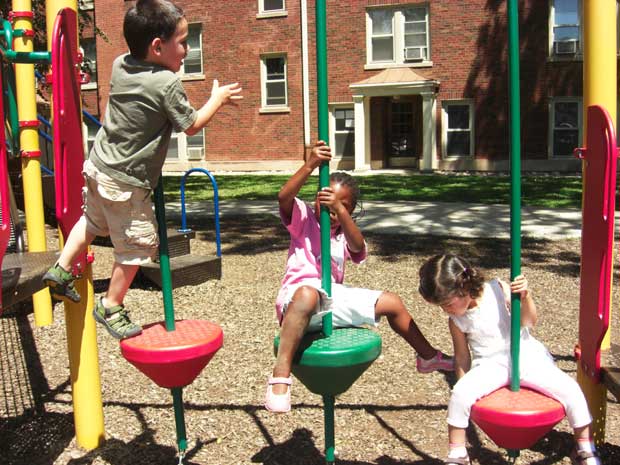Common Behavioural Disorders in Children
From thumb sucking to temper tantrums, kids go through a lot of phases as they grow up. Some pass quickly, while others have longer-term implications. When behavioural disorders get out of hand, the cause may require more serious attention.
There are a number of common behavioural disorders that may be diagnosed in young people (during infancy, childhood or adolescence). While these disorders can be mild or severe, Applewood Academy for Progressive Learning specializes in working with kids at the extreme end of the spectrum.
“A child must have high needs for people to consider moving him or her to a therapeutic educational environment like Applewood,” explained Jeff Waplak, clinical director for Stevenson, Waplak & Associates, and Applewood Academy.
“The first stop, when someone is concerned about behaviour, is usually the family doctor; some disorders can be treated at that level. When that doesn’t work, they look to other options like what we offer.”
Common Disorders at Applewood Academy
While there is a long list of disorders that can be diagnosed at a young age, Waplak says seven are more commonly seen in kids who attend Applewood:
- Conduct Disorder, a disorder where kids have problems following rules or using socially appropriate behaviour;
- Oppositional Defiant Disorder, which is defined as “a pattern of disobedient, hostile, and defiant behavior toward authority figures”;
- Attention Deficit Hyperactivity Disorder (ADHD or ADD), the most common childhood disorder, which is marked by hyperactivity, inattentiveness and impulsiveness;
- Aspergers Syndrome, a developmental disorder that is a form of autism;
- Tourette Syndrome, a neurological disorder that is characterized by involuntary movements or sounds that are otherwise known as “tics”;
- Anxiety Disorders, a term that refers to disorders that cause irrational amounts of fear or anxiety;
- Mood Disorders, which refers to any number of disorders that can impact an individual’s mood, including Depression.
Behavioural disorders in the classroom
Behavioural disorders make it harder for kids to learn, and in a typical classroom can be very disruptive. “The kids who come to Applewood commonly show aggression, verbal defiance, impulse control problems, anxiety, or depression,” Waplak noted.
“One of the steps we take in our initial assessment is to review the student’s diagnosis and their behaviours, then to consider how those behaviours interfere with his or her ability to learn and how those disruptions can be minimized.”
Learning to manage behaviour is part of Applewood’s curriculum. Waplak says they review a number of life skills during the school year. “Every month has a different therapeutic theme,” he explained. These themes include:
- communication skills,
- self-awareness skills,
- emotional control,
- conflict resolution skills,
- sleep and relaxation skills,
- health and nutrition,
- use of technology in learning,
- therapeutic riding (i.e. horses),
- role of community involvement, and
- safety / crisis planning (i.e. drug and alcohol use, personal safety on the web).
“We follow the MindMasters program that was developed by the Children’s Hospital of Eastern Ontario,” said Waplak. “This is a program that was created to help kids learn positive life skills, like managing anxiety and stress.”
Learn more about Applewood Academy
Applewood Academy offers a unique learning environment with a learning plan for every student. This plan combines high-quality education with a therapeutic program that addresses not just the student’s needs but also their personality and motivations.
For more information about Applewood Academy, please contact us or send us a message on Twitter.

